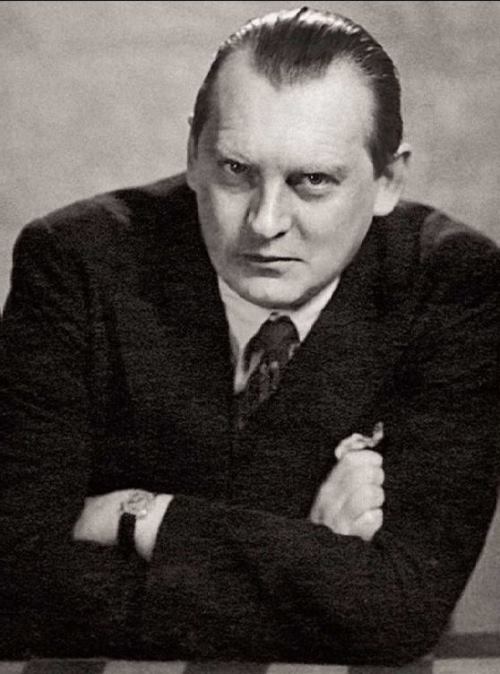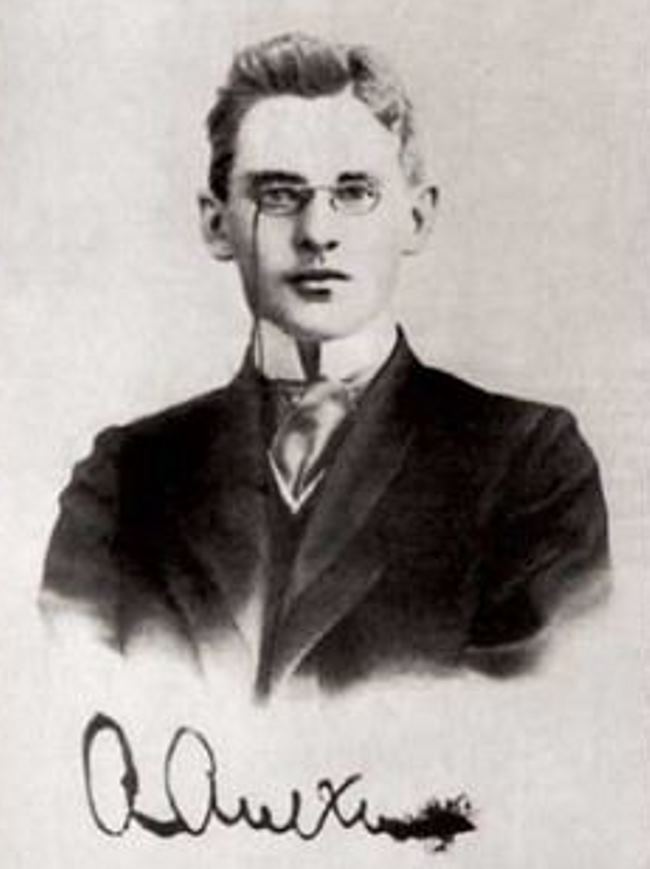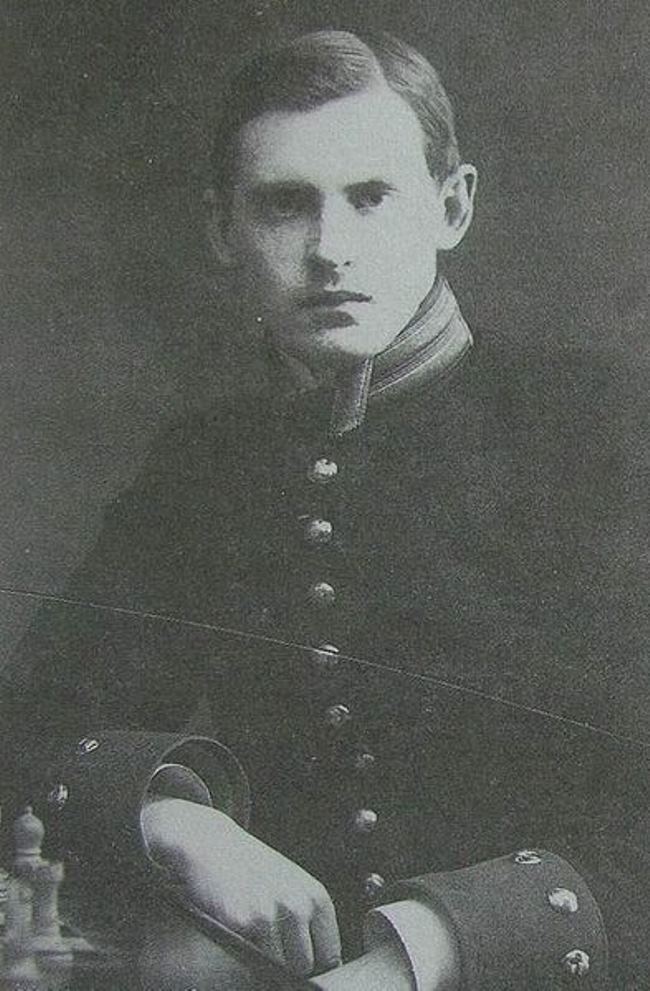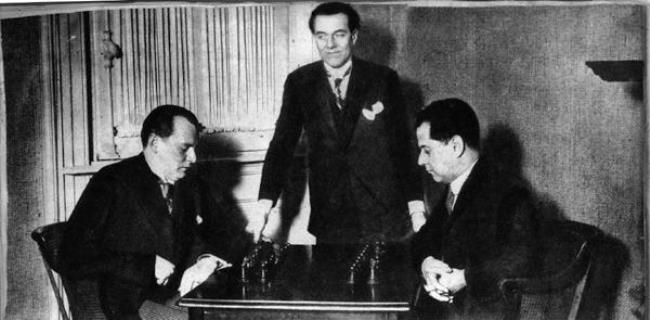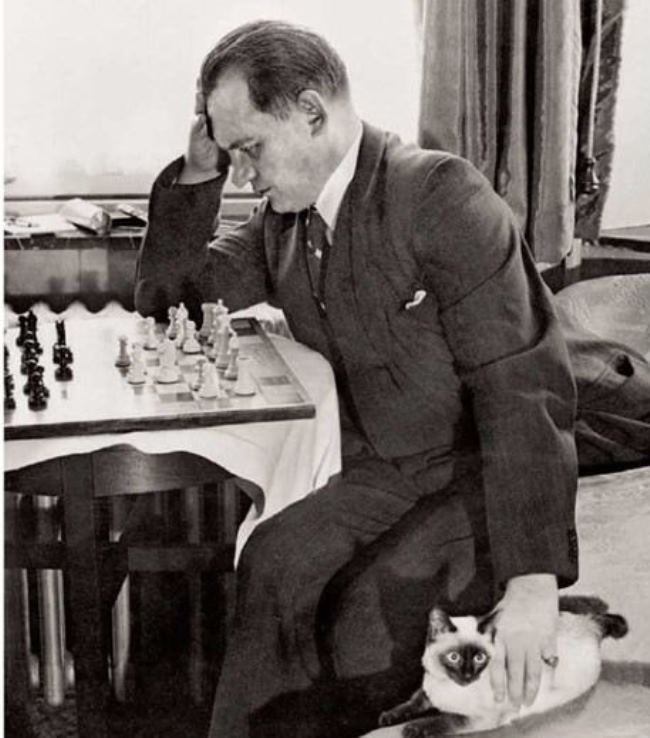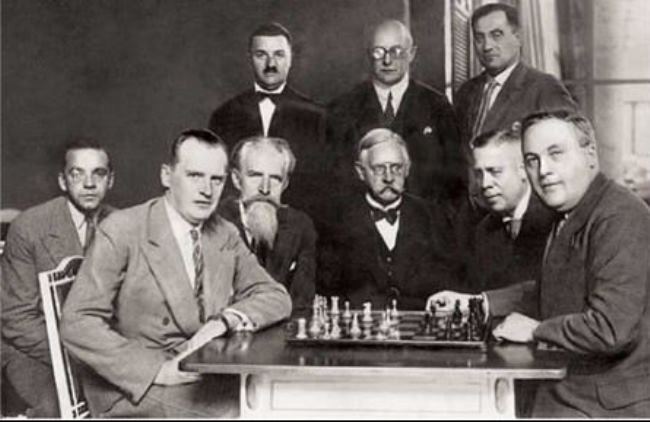Alexander Aleknine – Artist of Chessboard
In 1927 thirty-five-year-old Alexander Alekhine became the first Russian to win the world chess championship title. He defeated the Cuban grandmaster Jose R. Capablanca, who had held the world title. Alekhine won six games, Capablanca three, and 25 were drawn.
The match was more than a personal victory for Alekhine, it was a triumph for the ideas of the Russian chess school.
“For me chess is not a game but an art,” Alekhine once said. “Yes, I consider chess an art and accept all the responsibilities it lays upon its devotees.”
“Alekhine’s win”, wrote Emanuel Lasker, the eminent German grandmaster who held the world crown longer than anyone (from 1894 to 1921), “is the victory of an inflexible fighter over a mind that shies away from anything obscure. Capablanca aims at precision, using scientific methods. Alekhine is a greater artist, has a more searching mind, and, in principle, such creative work is on a higher level”.
Richard Reti, a Czechoslovak grandmaster, remarked that “in games won by Alekhine, beneath the ice-cold cloak of modern technique, there burnt the bright and passionate flame of searchings for new paths — something quite alien to Capablanca”.
Alexander Alekhine was born in 1892 in Moscow into a wealthy family. His father was the leader of the nobility of the Voronezh province and subsequently he became a deputy of the fourth State Duma. The father was always busy and his mother led her own special life, so young Alexander discovered the fascinating world of chess.
Alekhine had been playing chess since he was 7 years old. In his youth, he often participated in the popular correspondence tournaments, which contributed to the development of his analytical thinking. At the age of 16, having won the All-Russian tournament in memory of M.I. Chigorin (Petersburg, 1909), he received the title of maestro and was awarded a porcelain vase – the main prize established by Their Imperial Majesties. In 1914, Alekhine took the third place and became a grandmaster.
In the summer of 1916, the titular adviser Alekhine voluntarily went to the Galicin front at the head of the Red Cross detachment. For the salvation of the wounded he was awarded two St. George medals, and for the salvation of an officer – the Order of St. Svyatoslav with swords. Moreover, he was shell-shocked twice. When he was in the hospital, he invited chess lovers and gave them sessions of simultaneous blindfolds.
In April 1919, during a chess tour in Ukraine, Alekhine was arrested in Odessa and sentenced to death on charges of having connections with the White Guards. Only thanks to the intervention of the chairman of the Council of People’s Commissars of Ukraine Kh. Rakovsky he was released. In the same year, he entered the State Film Studio in Moscow, but already in May 1920 he went to the Moscow Criminal Investigation Department as an investigator of the Main Directorate of Militia. He was fluent in English, French and German, and worked as a translator. In October 1920 Alexander became the first winner of the chess championship of Soviet Russia. A year later he married Annelise Ruegg, an activist of the Swiss Democratic Party. The marriage was short-lived, but allowed Alekhine to emigrate from Russia without hindrance. Emigration for many representatives of the Russian intelligentsia was at that time the only way to preserve their beliefs, ideals, and life.
In 1921-27 Alekhine played in 22 international tournaments and won 14 of them. By the way, he set several world records in sessions of simultaneous blind play.
Alekhine continued scientific activities, in 1925 at the Sorbonne he defended his dissertation on the topic: “The system of imprisonment in China”, became a doctor of law.
Alekhine, as a champion, in every possible way contributed to the popularization of chess, because it is a universal language of communication, regardless of nationality. It was he who was the first of the world champions to conduct a round-the-world chess tour in 1932-1933 (USA, Mexico, Cuba, Hawaii, Japan, Shanghai, Hong Kong, Philippines, Singapore, Indonesia, New Zealand, Ceylon, Egypt, Palestine, Italy), during which he played 1320 games (1161 won and only 65 lost). He headed the French national team for ten years in a row.
Most of all in his life he was interested in chess. In the first half of the 20th century Alekhine was one of the few chess players for whom the game became a profession and who recognized that they made a living by playing chess.
You know, Alekhine was a big cat lover. His Siamese cat Chess was constantly present at the competitions as a mascot. During the first match with Euwe Alekhine made the cat sniff the board before each game.
With the outbreak of World War II, Alekhine voluntarily joined the French army as a military translator with the rank of lieutenant. He was taken prisoner, after the surrender of France Alexander was freed but only formal. There was the arrest of all property and the constant threat of reprisals of his wife Grace Wishar, an American citizen. In order to save his wife and obtain a visa to leave the occupied territory at least to Portugal, the world champion in 1941 agreed to write two articles on the history of chess to the Reich press. Only after the war Alekhine learned that his articles published in the Paritzer Zeitung were turned by Nazi editors into the apotheosis of anti-Semitism in chess.
In the Reich, Alekhine played 8 tournaments, gave several sessions of simultaneous play to the highest ranks of Germany, never lost, and he was not given a visa until 1943.
In 1938 Mikhail Botvinnik, the Soviet chess player, challenged him to a match and Alekhine accepted the challenge. He asked that the contest be held in Moscow and that he be permitted to go to the Soviet Union, a country he had left in 1921 in search of chess honours, three months before the match. Both protagonists began to prepare for the duel, but the Second World War intervened.
In March 1946 Botvinnik again proposed a match with Alekhine for the world championship. Alekhine agreed, but he died unexpectedly that same month in Estoril (Portugal), seated alone before his chessboard.
The ashes of the great Russian chess player were taken to Paris where he had been living since the early twenties, and FIDE (the World Chess Federation) erected a tombstone over his grave bearing the inscription:
’’Alexander Alekhine 1892—1946 Chess Genius of Russia and France”
Grandmaster Alexander Kotov, who devoted a lot of time to studying the life and work of Alekhine, wrote a biographical novel White and Black. American chess player Charles Yaffe wrote a novel about Alekhine’s Anguish: A Novel of the Chess World. Novel by Kotov formed the basis for the script for the film White Snow of Russia, released in 1980. The role of Alekhine was played by the People’s Artist of Russia Alexander Mikhailov.
Alexander Aleknine – Artist of Chessboard
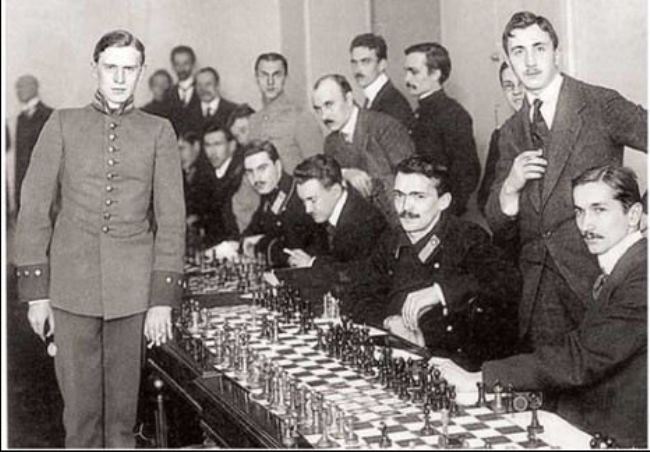
Alexander Alekhine (left) in the uniform of a student of the Imperial School of Law at the St. Petersburg tournament
